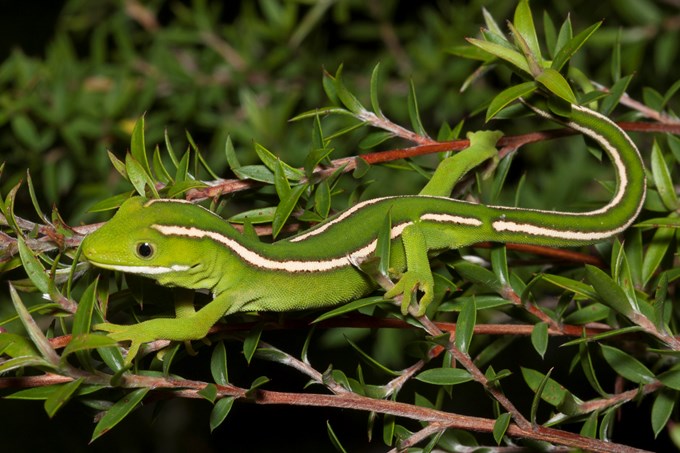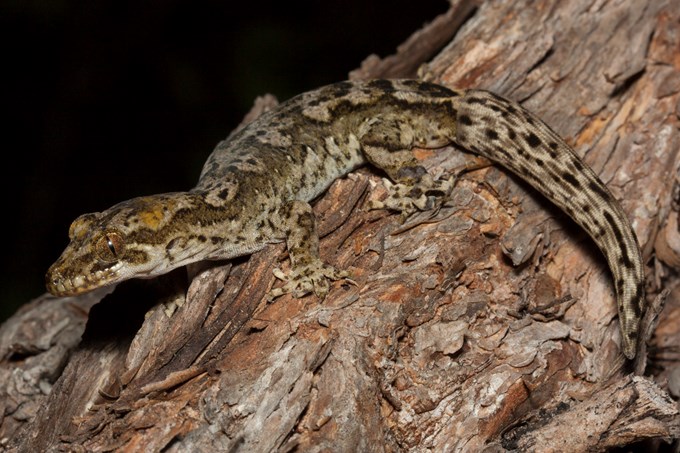Auckland is home to seven species of gecko, but the Department of Conservation says six of these species are at risk.
Geckos are an important component of native ecosystems both as predator and prey, and play a role in plant pollination and seed dispersal.
The decline in gecko populations, including the Auckland green gecko or kākāriki, is a result of habitat clearance and increasing predation pressure from pest species, but Auckland Council is working to reverse the downward trend in numbers and distribution.
“We’re looking at how we can actively manage threatened gecko species and help boost population numbers,” says Melinda Rixon, an Auckland Council Ecologist. “We run a native gecko monitoring programme at several regional parks and other sites in the region, where we assess population changes to help us plan targeted biodiversity management.
“Our translocation programme is helping restore populations by moving them into well-protected areas. We released common and Pacific geckos onto an island in the Hauraki Gulf – a thriving black market for our native geckos overseas is a real threat, so we tend not to publicise where these less secure locations are, but we can tell you the founder animals are in great condition and their numbers are increasing already.
In 2016, Duvaucel’s geckos were released to a mainland reserve - “the release of Duvaucel’s geckos represents a milestone for our country’s largest gecko species, as it’s the first time in 100 years that they are on the mainland.
In addition, the council is leading the way by acknowledging the impact building and infrastructure developments can have on native lizards by introducing standardised lizard consent conditions as part of the resource consent process. These conditions have been developed through consultation with DOC and gecko experts.
A helping hand
You can help protect geckos and other native lizard species:
- Create gecko-friendly gardens on your property with thick, native vegetation to protect lizards from predators and provide a continuous food supply.
- Minimise vegetation clearance.
- Control predators in your backyard or join a local community group.
- If you own a cat, keep it inside at night.
- Don’t capture, collect or deliberately disturb native lizards. They are protected by the Wildlife Act.
- Report any sightings of geckos to Auckland Council: take a photo and note details of the location and what the gecko was doing at the time. You can call us on 09 301 0101.
- Find out how to encourage lizards to live in your garden



